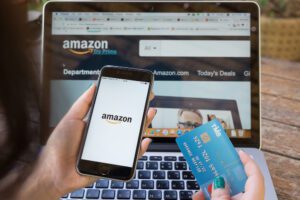The automotive industry has evolved in ways we never would have thought possible even a decade ago. From the emergence of autonomous vehicles to the growing popularity of ridesharing, auto dealers have had to manage an onslaught of changes. These new trends—as well as many others—have required automakers and dealers to come up with new and innovative marketing, business operation, and customer experience approaches.
The automotive industry has not been the only one to have to embrace change radically. The new sharing economy—as well as a greater emphasis on creating an exceptional customer experience — has spurred disruption in everything from hospitality to home delivery. So, what can the automotive retail space learn from other industries about handling this new era of heightened customer expectations? Take a look at four lessons automotive retail professionals can learn from other sectors.
A Purchasing Process that Utilizes More Digital Approaches – Mortgages and Home Lending
Mortgages and home lending companies are beginning to add more convenience to the home buying process by adding more online tools for customers. A great example is the launch of Rocket Mortgage in 2015, an online mortgage app connected to Quicken Loans. Customers can apply for a loan and handle the mortgage process online. While many dealers may not be in a position to put the entire dealership purchasing experience online, digitizing parts of the process can make life much easier for dealers and customers alike. For example, allowing customers to pre-apply for a loan before they come into the dealership, or inform sales representatives of what they are looking for before they enter the showroom can better streamline the car buying process. With the rising numbers of customers becoming dissatisfied with the length of the purchasing experience, digitizing portions of the car buying process can make life easier for everyone.
Better Prediction of Customer Buying Patterns – eCommerce Giants like Amazon and Walmart 
Everyone has experienced the power of Amazon’s purchasing recommendations. The eCommerce giant’s online algorithms are strikingly accurate at predicting what else customers may want after their purchase. This development comes from an intensive customer data collection process. Amazon is continuously tracking and collecting data regarding their customer’s buying habits. While Amazon likely has more data to pull from as a result of the variety of items they offer, dealers can also stand to benefit from this approach. Monitoring a customer’s buying and research habits over time can give dealers the data they need to create marketing campaigns that more directly appeal to their needs.
The Protection of Consumer Data – Various banking companies
We are living in a different time. Much like the mortgage, banking, and even general retail industries, those involved in automotive retail are handling sensitive financial and personal information. Unfortunately, companies like Equifax and even Target have had to learn the hard way about protecting the information of their customers. Auto dealers have to ensure the customer’s data is secure and only accessible through a variety of security measures. For example, banks often use password protection, two-step authentication, and encryption to protect consumer information. Dealers also need to consider using these methods to protect user information and maintain trust.
Partnerships with Players in the Sharing Economy – Airbnb and HotelTonight
Airbnb has been partnering with HotelTonight, an online travel app that allows users to find discounted hotels all over the globe. Users are beginning to see more hotels being offered in tandem with the homes and apartments Airbnb is known for offering. The goal of the partnership is to allow more hotels to benefit from guest demand. This partnership reveals that traditional industries and companies working within the sharing economy can benefit from one another. As ridesharing continues to grow in prominence, automotive retail players may want to think of mutually beneficial partnerships that can allow them to capitalize on their popularity.
Final Thoughts
Over the past few decades, the way auto dealers have done business has mostly remained the same. However, multiple industry-related disruptions have caused dealers and automakers alike to create ways to continue to thrive amid high customer expectations, and greater calls for convenience flexibility. Today, dealers have had to answer these calls. Fortunately, they have some helpful examples to look to as other industries have had to walk through many of the same new issues. From hospitality to banking, auto dealers can stand to learn a lot about how to move forward in a world when creating an exceptional customer experience is more of a differentiating factor than ever before.








